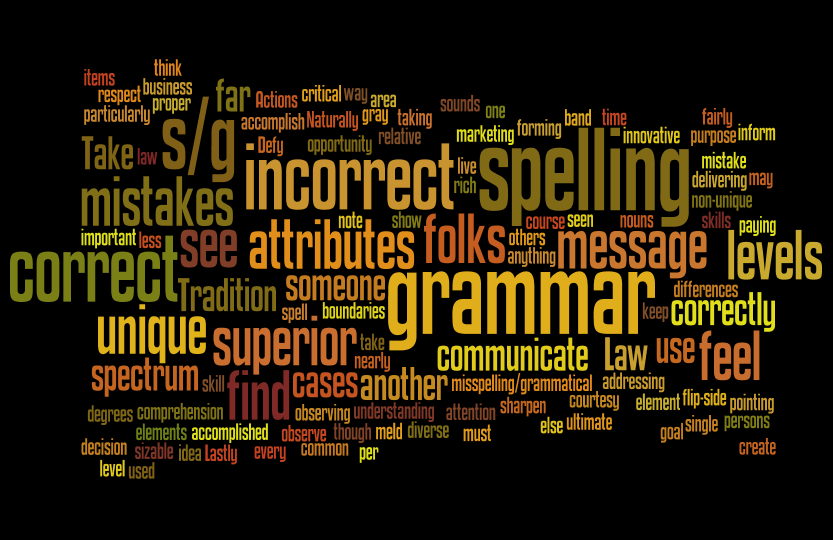Law of Tradition
There is a correct and incorrect way to accomplish spelling and grammar. I see the boundaries of correct and incorrect being fairly far from each other forming a sizable gray area in which I live. The ultimate purpose is to communicate an idea to someone else and if this is accomplished you have used spelling and grammar correctly. Where I’ve seen folks take this law too far is taking time to inform someone of every spelling and grammar mistake you find. Naturally, there are degrees of understanding and comprehension to spelling and grammar and each of us has a unique level of those attributes. I find mistakes in folks use of s/g that have less of those attributes and folks that have more of those attributes find mistakes in my use of s/g. With all those unique levels we create a spectrum that is diverse and rich. Is the goal of pointing out differences between the levels to meld us all into one single non-unique s&g band? That doesn’t sounds nearly as innovative as having a unique spectrum. On the flip-side there are items which I think are a common courtesy to spell correctly such as proper nouns which show respect and that you’re paying attention to whom you are addressing, not particularly the message that you’re delivering. Lastly, there are cases where, of course, it is a business critical element to have the most correct or incorrect s/g to communicate the message. In those cases though it is more of a marketing decision than anything.
To Defy the Law of Tradition
When observing another persons spelling and grammar…
- Take note of misspelling/grammatical mistakes if you must but if those elements aren’t important to the message per say then keep them to yourself. I feel superior, you feel superior, we all feel superior.
- Take the opportunity to sharpen your skills as you observe the skill levels of others.
- Actions (s/g), can be relative, so what you see as correct another may see as incorrect and visa versa.

